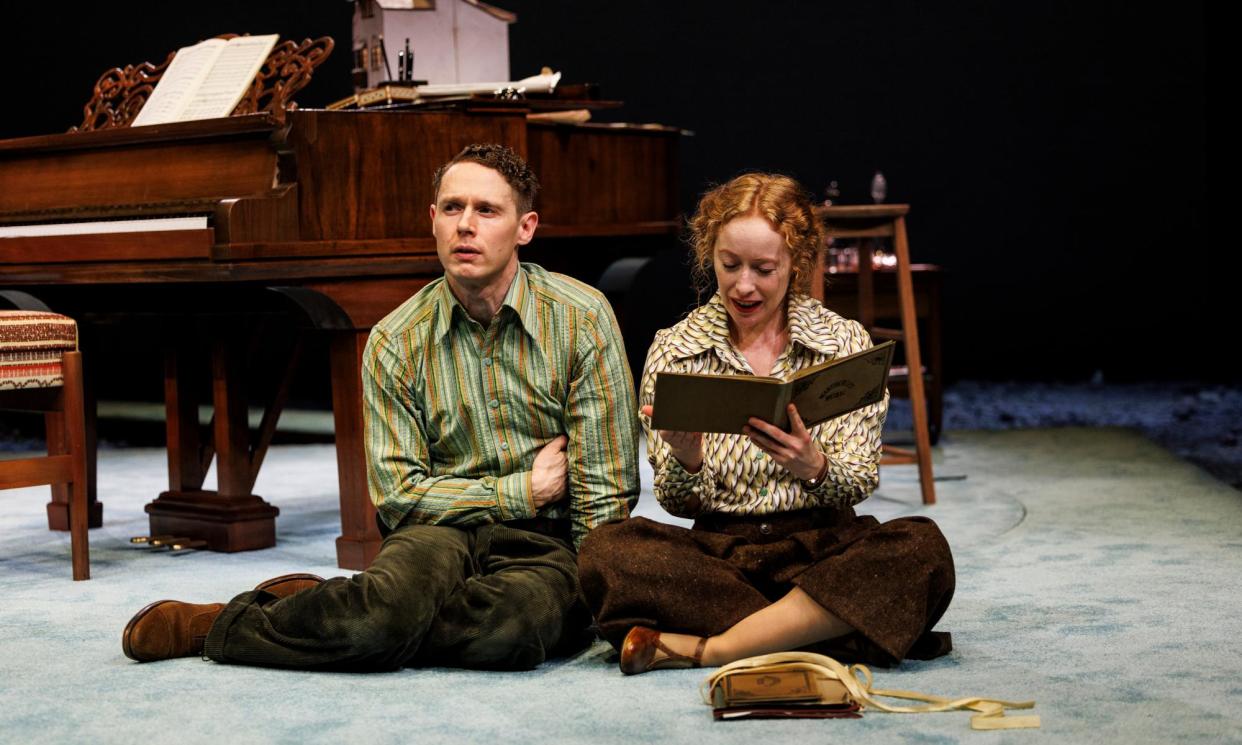Ben and Imo review – Britten and Holst’s collaboration slides into cruelty

In 1952, Benjamin Britten was commissioned to write a “national opera” for Queen Elizabeth’s coronation in just nine months. He enlisted Imogen Holst – Gustav’s daughter – as his musical assistant and they worked on Gloriana, which garnered a less than glorious critical reception.
Mark Ravenhill’s reimagining of their odd, unequal relationship has been excavated from its first life as a radio play in 2013. Ben (Samuel Barnett) and Imo (Victoria Yeates) convene in a room in Aldeburgh, dominated by a grand piano (set design by Soutra Gilmour), and the play at first seems to be about creative collaboration, hinting at how female authorship is erased out of the canon.
The origins in audio are apparent: Erica Whyman’s production is led by discussion. Imo and Ben talk about the developing opera, the nature of artistic creation and the era’s great investment in the Arts Council and a national opera company, which sounds ironic at a time when it has been so thoroughly denuded.
They run around like children at times to the sounds of the sea smashing the shore outside and occasionally repeated piano notes (piano by Connor Fogel with sound design by Carolyn Downing). But for a little too long, the drama courses along with not enough friction, only friendship, talk and games. It turns darker in the second half and then becomes a portrait of an abusive partnership, Ravenhill stripping all sentimentality from the story.
Ben lashes out at Imo with cruelty; she navigates his sallies, vows to leave, but is unable to go. The tension is there but the emotional drama does not thicken quite enough, perhaps because Ben is so unlikeable – he calls her a “dim-witted servant-girl” – and Imo too willing in her servitude.
Both actors give compelling performances nonetheless. Barnett’s Ben is a spoilt, power-playing man-boy. Yeates’s Imogen is a spirited and resilient woman who is badly treated, not paid for her work, but committed enough to the music to stay put.
Their outsider status bonds them. Ben is gay at a time when it is illegal and Imo is an unmarried woman trying to make her way in the muscular world of classical music. She reminds us and herself, too often, that she is content to assist a composer rather than become one herself, although the creative drive is clearly there. Her thwarted ambition is the quiet tragedy of the piece. There is much said, but much unsaid too, and it is ultimately a muted study in repression.
• At the Swan theatre, Stratford-upon-Avon, until 6 April


